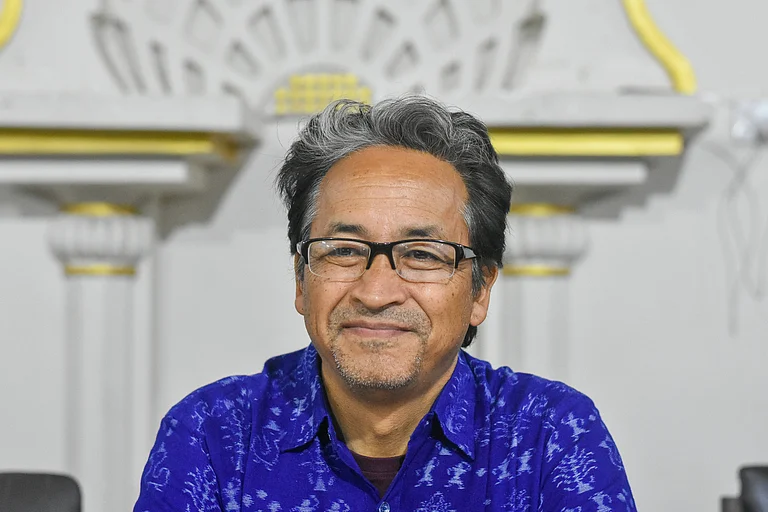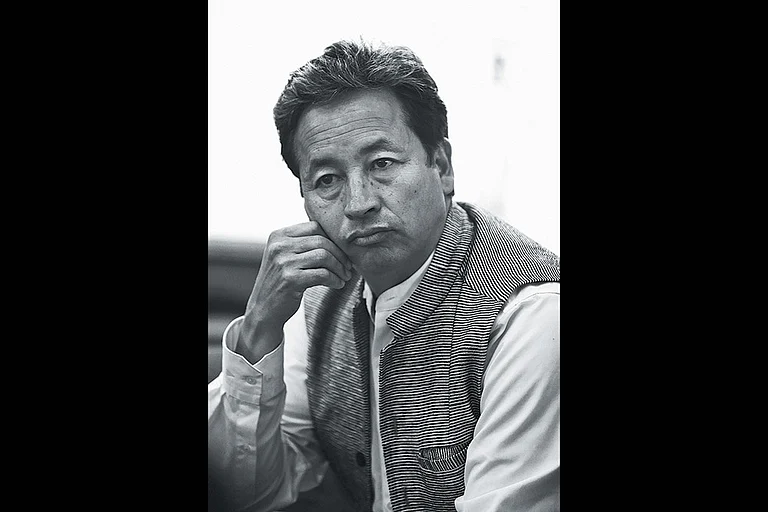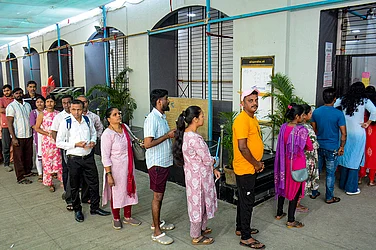
Sonam Wangchuk arrested under NSA after Leh protests turn violent.
Political leaders across India condemn the arrest, citing unfulfilled promises.
Cancellation of SECMOL's FCRA license adds to tensions in Ladakh.
The arrest of Sonam Wangchuk, renowned environmentalist and educationist, on September 26, has drawn criticism from leaders across the political spectrum amid unrest in Leh, Ladakh. According to NDTV, Wangchuk was detained under the National Security Act (NSA) following violent protests that left four people dead and over 90 injured.
The unrest followed the end of Wangchuk’s 14-day hunger strike, which he had undertaken to press for constitutional safeguards, environmental protections, and Sixth Schedule status for Ladakh, aimed at granting the region greater autonomy and protections for its indigenous communities.
Clashes with police led to damage to government property, prompting a curfew and a suspension of mobile internet services. Authorities also canceled the FCRA licence of Wangchuk’s NGO, SECMOL, citing alleged violations. Wangchuk has denied accusations of inciting violence, calling the arrest a “scapegoat tactic.”
Political Reactions
Leader of Jammu and Kashmir People’s Democratic Party, Mehbooba Mufti described the arrest as “deeply disturbing,” highlighting that Wangchuk, a lifelong advocate of peace and sustainability, is being punished for demanding that promises be kept. She added that the curfew and internet shutdown in Leh is “a grim echo of what Kashmir has long endured.”
Congress leaders Jairam Ramesh and Ghulam Ahmad Mir condemned the arrest. Ramesh accused the BJP of diverting attention from its failure to maintain law and order in Ladakh and highlighted unfulfilled promises of Sixth Schedule status, whereas Mir defended local Congress workers, insisting they were not involved in the protests, and called for a judicial inquiry, stating the government mishandled the situation.
Omar Abdullah, Chief Minister of Jammu and Kashmir, called the arrest “very unfortunate.” He criticized the central government for repeatedly reneging on promises made to the people of Ladakh, comparing the situation with unfulfilled assurances to Jammu and Kashmir. He pointed out that assurances given before the Hill Council elections had not been honored, and questioned delays in restoring statehood to Jammu and Kashmir.
Former Delhi Chief Minister Arvind Kejriwal issued a broader warning against authoritarian practices, drawing historical parallels, “Ravana’s end came. Kans’s end came. Hitler and Mussolini also met their end. Today, people hate all those figures. In our country, tyranny is at its peak. The end of those who exercise tyranny and arrogance is always bitter.”



























